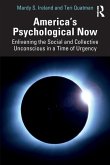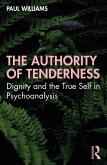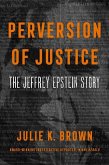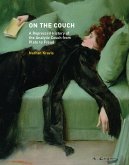This book explores the causes behind Trump's victory in the 2016 US presidential election and asks how a psychoanalytic understanding of the social unconscious can help us plot a new direction for the future in US politics and beyond.
It first describes the social/psychological threads that are the now of American culture. Seeds of hope are discovered through an in-depth examination of the American idea of excess as represented by Trump, its archetypal figure. Essential psychoanalytic ideas such as, the fundamental human condition of living with both individual and social unconscious, the psychic feminine principal, the notion of psychic valence and more are illustrated as psychic integrations necessary for America to move towards a redemptive positive social change. This book combines feminist exploration with playful illustrative imagery and mythic story-aiming to awaken minds across generations.
America's Psychological Now is key reading for psychoanalysis, psychologists, political theorists, and anyone wishing to understand better how the social and political systems could be changed for the future.
It first describes the social/psychological threads that are the now of American culture. Seeds of hope are discovered through an in-depth examination of the American idea of excess as represented by Trump, its archetypal figure. Essential psychoanalytic ideas such as, the fundamental human condition of living with both individual and social unconscious, the psychic feminine principal, the notion of psychic valence and more are illustrated as psychic integrations necessary for America to move towards a redemptive positive social change. This book combines feminist exploration with playful illustrative imagery and mythic story-aiming to awaken minds across generations.
America's Psychological Now is key reading for psychoanalysis, psychologists, political theorists, and anyone wishing to understand better how the social and political systems could be changed for the future.
"This highly accessible book sheds a developmentally attuned, psychoanalytic perspective on the phenomena of excess in America and shows how it has permeated our culture and collective unconscious. It's wide-ranging critique; from Eve to Lilith, from Hilary Clinton to Angela Markel, and from the baby boomers to generation Z allows the reader to consider the darker aspects of our culture's relationship to excess from a variety of angles, while calling upon the contributions of 21st century Feminist Theory as a path to address the crisis of democracy in America."
Hattie Myers Ph.D. is a training and supervising analyst at (IPTAR) and founder/editor of ROOM: A Sketchbook for Analytic Action.
"Ireland and Quatman explore the hidden recesses of our national psyche, shedding light on the unconscious forces currently shaping and fragmenting our country. With passion they urge us to embrace a new feminist perspective, one they call "warrior work", to confront the forces that perpetuate sexism, racism and acquisitiveness. This book is a must read, a rallying cry for a society urgently in need of healing."
Kerry Malawista PhD, psychoanalyst, author of When the Garden isn't Eden and Meet the Moon, and co-chair New Directions Writing Program.
Hattie Myers Ph.D. is a training and supervising analyst at (IPTAR) and founder/editor of ROOM: A Sketchbook for Analytic Action.
"Ireland and Quatman explore the hidden recesses of our national psyche, shedding light on the unconscious forces currently shaping and fragmenting our country. With passion they urge us to embrace a new feminist perspective, one they call "warrior work", to confront the forces that perpetuate sexism, racism and acquisitiveness. This book is a must read, a rallying cry for a society urgently in need of healing."
Kerry Malawista PhD, psychoanalyst, author of When the Garden isn't Eden and Meet the Moon, and co-chair New Directions Writing Program.








